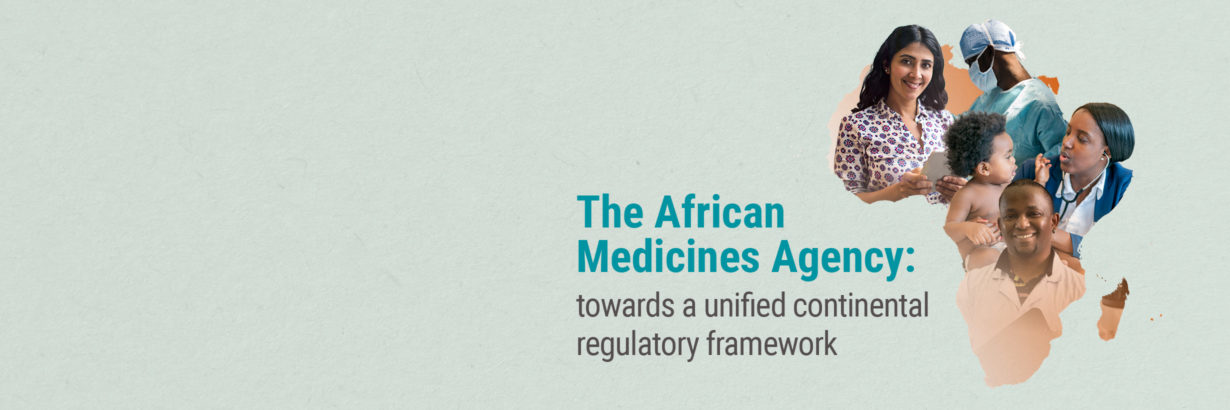The African Medicines Agency is expected to further the interests of public health
The African Medicines Agency is expected to further the interests of public health

Insufficient access to quality, safe, efficacious and affordable medical products in Africa has posed a significant challenge to public health for decades. In part, this is attributed to weak or absent policies and regulatory systems, a lack of appropriately trained personnel in National Medicines Regulatory Authorities (NMRAs) and ineffective regional collaborations among NMRAs. In response to national regulatory challenges in Africa, a number of regional harmonisation efforts were introduced through the African Medicines Regulatory Harmonisation (AMRH) initiative to, among others, expedite market authorisation of medical products and to facilitate the alignment of national legislative frameworks with the AU Model Law on Medical Products Regulation.
The African Heads of State and Government at their 32nd Ordinary Session in February 2019 adopted the Treaty for the establishment of the African Medicines Agency (AMA) placing an emphasis on investment in regulatory capacity strengthening and responding to the enormous health challenges including lack of access to affordable, quality essential medicines. The Assembly further called on its Member States to sign and ratify the Treaty in order for the Treaty to enter into force as soon as possible.
AMA will enhance the capacity of states parties and Regional Economic Communities (RECs) to regulate medical products in order to improve access to quality, safe and efficacious medical products on the continent. AMA will also promote the adoption and harmonization of medical products regulatory policies and standards, as well as provide scientific guidelines and coordinate existing regulatory harmonization efforts in the African Union recognized RECs and Regional Health Organizations (RHOs). It will be the second continental health agency after the Africa Centres for Disease Control and Prevention (Africa CDC).
AMA’s financing model is based on diversified funding to ensure ownership and sustainability. The financial mechanisms are (1) direct contributions from member States through the AUC, (2) direct contributions from partners, (3) revenue generation, and (4) innovative financing mechanisms (endowment fund and use of social impact bonds). It is expected that contribution from the endowment fund and social impact bonds will reach 25% by 2022.
The World Health Organization (WHO) estimates that 10.5% of medicines worldwide are substandard or falsified. Between 2013 and 2017, 42 per cent of all reports sent to the WHO Global Surveillance and Monitoring System on substandard and falsified medicines worldwide came from Africa. Most of the burden falls on low-and middle-income countries because of poor pharmaceutical governance, weak technical capacity, and poor supply-chain management.
Substandard and falsified medical products and medicines inflict economic burdens on individual patients and their families On the other hand, legitimate pharmaceutical companies also face huge revenue losses due to competition for the market with substandard and falsified medicines and medical products. Governments make additional losses through the loss of revenue from unpaid taxes and spending money in fighting the falsified medicines and medical products menace. Poor-quality medicines result in increased cost, such as resources wasted on ineffective therapies and treating additional complications.
As of today, the AMA treaty has been signed by nineteen AU Member States, while six Member States have ratified the treaty and deposited the instrument at the AU Commission. Two Member States have ratified the Treaty but are yet to deposit the instrument of ratification.
The African Medicines Agency will enter into force once ratified by fifteen (15) African Union Member States, and 30 days after the deposit of the 15th instrument of ratification. Due to the value that this continental health agency will bring to all 55 AU Members States and the citizens of Africa, the call on Member States of the Africa Union to ratify the AMA legal instrument in order for it to come into force as soon as possible, should be responded to with urgency. The African Union Commission will continue to support Member States to fast track the ratification processes at national level, and encourages all its member states to ratify and deposit the instrument of ratification in the interest of continental public health, safety and security.

